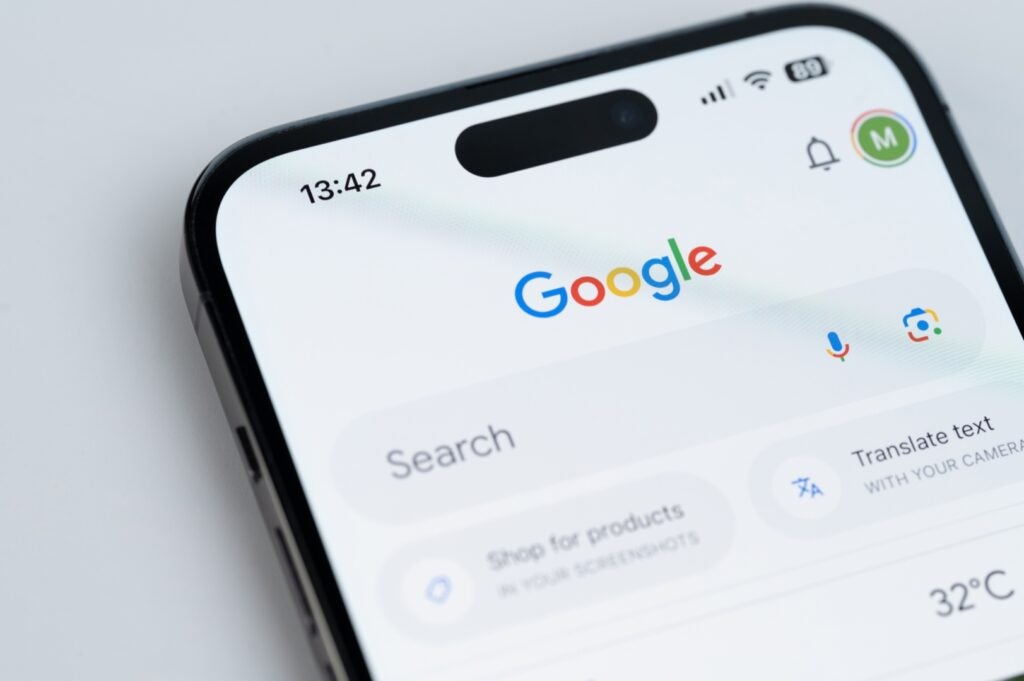Alphabet Inc.'s GOOG GOOGL lucrative agreement to pay Apple Inc. AAPL over $20 billion a year to make its search engine the default on iPhones is now under threat.
What Happened: In May earlier this year, an antitrust lawsuit against Google’s parent company revealed that Apple received a massive $20 billion in 2022 to make Google the default search engine on Apple's Safari browser on iPhones.
The documents also underscore the importance of these payments to Apple's financial performance, with Google's contributions in 2020 accounting for 17.5% of the company’s operating income.
Following this, in August, a U.S. federal judge ruled that Alphabet's Google holds an illegal monopoly in the search engine market.
The U.S. Department of Justice (DOJ) now plans to propose measures to prevent these types of payments, arguing that they reinforce Google’s dominant position in the market, according to the Wall Street Journal.
See Also: Alphabet’s Life Sciences Firm Verily To Become A Standalone Entity, Disconnect From Google
If the judge grants the DOJ’s request, this long-standing arrangement between the two tech giants could end.
If Google is barred from making these payments, Apple might need to find new partners to fill the gap. Microsoft Corporation's MSFT Bing or other search providers could step in, but whether they will offer similar terms remains uncertain.
While Bing was the default search engine for Siri and Spotlight from 2013 to 2017, Apple later switched back to Google.
Microsoft launched Bing in 2009 to directly compete with Google. However, despite its efforts, Google remains the dominant player.
A previous Bloomberg report has also suggested that the DOJ’s plan highlighted the proposal to force Google to divest its Chrome browser.
Why It Matters: Though the ruling could be a setback for Google, it's far from final.
Google has already indicated that it will appeal the decision, and the outcome could change depending on future legal developments.
Earlier, Google’s vice president of regulatory affairs, Lee-Anne Mulholland told Benzinga, "The government putting its thumb on the scale in these ways would harm consumers, developers, and American technological leadership at precisely the moment it is most needed."
Previously, Alphabet CEO Sundar Pichai also stated during the company’s third-quarter earnings call that the DOJ’s proposals could result in “unintended consequences.”
As the DOJ’s final proposed remedies draw nearer on Nov. 20, JPMorgan analyst Doug Anmuth anticipates potential headline risk but believes it could provide much-needed clarity.
He continues to have an Overweight rating on GOOGL stock, with a price target of $212, indicating a 20% upside from its current price.
Price Action: On Tuesday, Alphabet’s Class A shares rose by 1.61%, closing at $178.12, while Class C shares increased by 1.57%, finishing at $179.58. In Wednesday’s pre-market session, Class A shares gained 0.06% to $178.22, and Class C shares edged up by 0.03% to $179.63, as of the latest update, according to data from Benzinga Pro.
Apple shares rose by 0.11% on Tuesday, ending the day at $228.28. However, in Wednesday’s pre-market session, the stock declined by 0.21%, reaching $227.79 at the time of writing.
Read Next:
Disclaimer: This content was partially produced with the help of AI tools and was reviewed and published by Benzinga editors.
Photo courtesy: Shutterstock
© 2024 Benzinga.com. Benzinga does not provide investment advice. All rights reserved.








